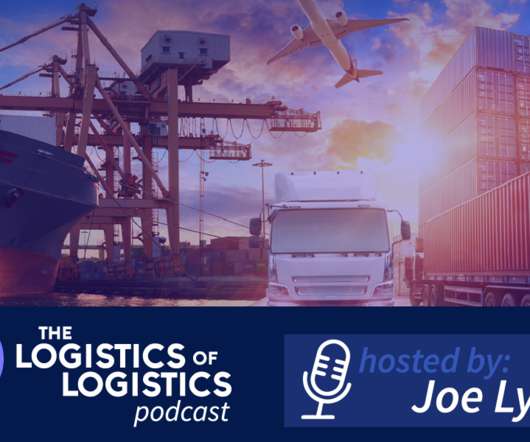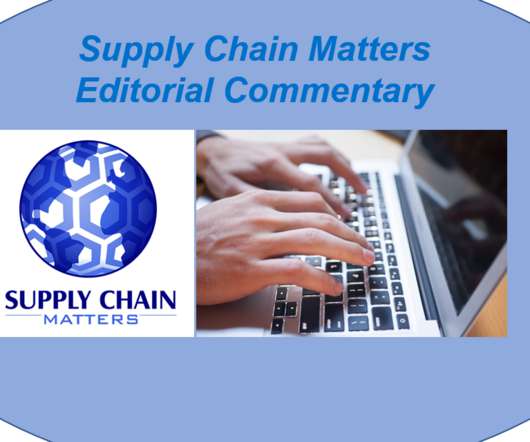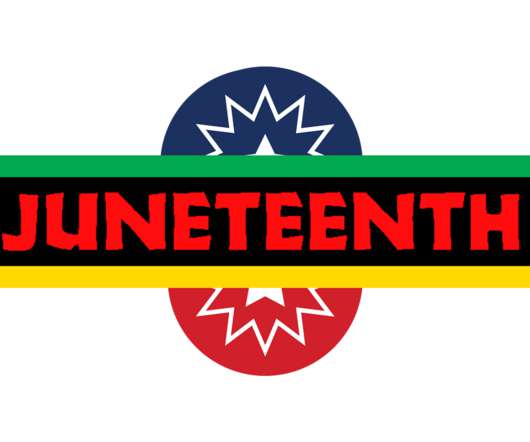Collaborating on Supply Chain Research
Talking Logistics
APRIL 8, 2015
Is there a greater need for supply chain research today than in the past, and if so, why? Robinson , in a recent episode of Talking Logistics titled, “ When Shippers, 3PLS, and Universities Collaborate on Supply Chain Research.” Do you agree that there is a greater need for supply chain research today than in the past?





















Let's personalize your content